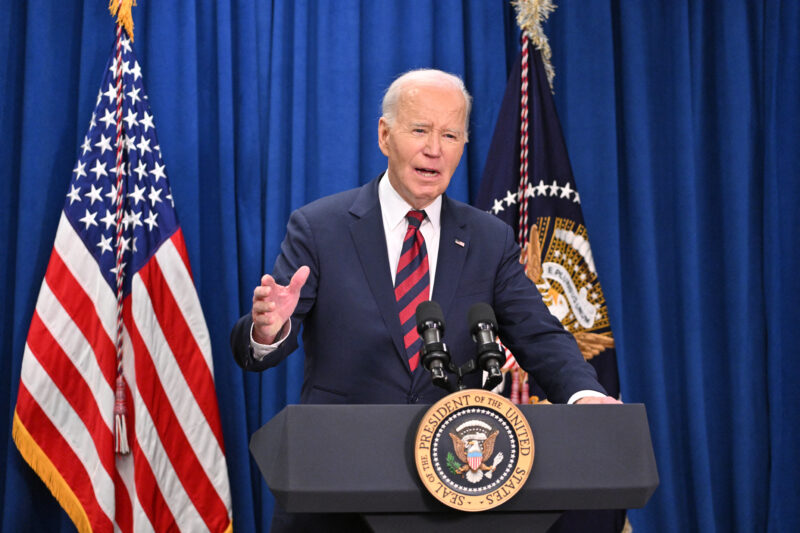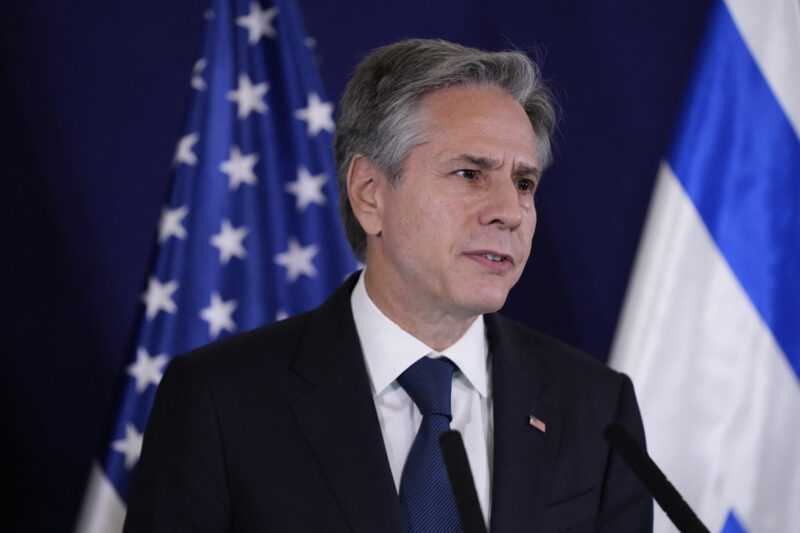H.R. McMaster describes negotiations with Iran, proxies as ‘delusional’
The former national security advisor said that the U.S. needs to be ‘much stronger in support of Israel’ and should stop pushing it to agree to cease-fire deals

Mark Wilson/Getty Images
National Security Adviser, H.R. McMaster, speaks about the situation in Syria during a discussion at the U.S. Holocaust Memorial Museum, on March 15, 2018 in Washington, DC.
H.R. McMaster, who served as a national security advisor during the Trump administration and was a top general in the Afghanistan and Iraq wars, predicted an extended conflict between Israel and Iranian proxies — and said that the U.S. needs to offer stronger backing to Israel and stop pushing for what he described as premature and foolhardy cease-fire agreements.
McMaster, speaking at the Foundation for Defense of Democracies on Thursday, said that the ongoing war between Israel and Iranian proxies will likely be a long one, given that it’s effectively a seven-front conflict, and that the war has placed Israel “in a more precarious position than it’s been in maybe since 1948.”
“It’s time for us to be much stronger in support of Israel,” McMaster continued, calling on the U.S. to stop placing pressure on Israel to agree to cease-fires with Hamas and Hezbollah or to limit its responses to attacks on its territory. He also said the U.S. should make Iran pay a direct price for its proxies’ attacks.
He said bluntly that negotiations with Iran, with the Houthis and with Hezbollah are not going to work under the current circumstances.
“It’s really delusional,” McMaster said. “It’s a fool’s errand… These organizations will not be deterred at all until we impose costs on them that go far beyond the costs that they factor in when they take these aggressive actions.”
McMaster blasted the Biden administration for what he described as lax policy toward Iran, but he said those issues also plagued the final phase of the Trump administration to an extent, including the Trump administration’s decisions not to respond to an attack on Al Asad Airbase in Iraq, Iran’s shooting down of a U.S. drone or Iran’s attack on a Saudi oil field.
“The Trump administration kind of backed off a little bit there, when I think that sent a mixed signal to Iran,” McMaster said. “But what really sent the mixed signal is the Biden administration’s approach to try to resurrect the JCPOA [Joint Comprehensive Plan of Action], and to do so by providing inducements to Iran,” he said, referring to the 2015 Iran nuclear deal.
McMaster brushed off the notion that the new Iranian president, Masoud Pezeshkian — or indeed anyone in the Iranian government — would be a “reformist,” describing that as a “deliberate Iranian narrative” that aims to push U.S. and international leaders to take a permissive posture toward Iran to avoid empowering supposedly more hard-line forces in the Iranian government.
“It’s all B.S. It’s complete B.S.,” McMaster said. “The revolutionaries won. They’re in charge. It’s the supreme leader and the IRGC [Islamic Revolutionary Guard Corps]. Pezeshkian is not a reformist… How many times do you have to be duped? It’s like Wile E. Coyote. Figure it out, man, the ACME rocket-propelled roller skates might not work.”
Regarding the war in Gaza, McMaster argued that “the destruction of Hamas is a precondition for getting back on a path to any kind of enduring peace between Israel and the Palestinians, or any kind of two-state solution you can imagine.”
As such, McMaster continued, “there’s a fundamental inconsistency in calling for cease-fires and then saying you’re for a two-state solution,” specifically criticizing President Joe Biden’s speech at the U.N. General Assembly. “It doesn’t make any sense to me.”
In order to ensure the lasting defeat of Hamas and that prospect for peace, McMaster said it will be necessary to have a viable “peace enforcement force” operating in Gaza. He said he does not think the IDF can credibly perform that role, which will require developing relationships with the Gazan population to develop intelligence sources.
He proposed a multinational force made up primarily of the Egyptian military, with assistance from Emirati special operations forces, some forces from Jordan and potentially other countries such as Uganda.
“It doesn’t matter as long as they are seen as pro-Palestinian population and they can earn the respect and legitimacy… by the population to give space or an alternative political order to emerge,” McMaster said.
McMaster said the U.S. will need to use “all of its persuasive power, its incentives and disincentives” to convince actors to step up and fill the vacuum. And McMaster said that large-scale rebuilding support should not begin until Hamas is removed from power.
He described the Trump administration’s two-state proposal as “in retrospect… laudable” but “of course, wasn’t going to work.”
The former national security advisor also said he believes that there has been deeper coordination between Iran and Russia than publicly known “on helping them deal with the blowback, the aftermath” of the Oct. 7 attacks.
He said that Russia has actively misled Israel about its posture while siding with adversaries including Syria’s Assad regime and Hamas — something he said he warned Israeli leaders about during his time in office.
Looking at the global threat landscape, McMaster said he agrees with the assessment of the nonpartisan Commission on the National Defense Strategy, which outlined in a recent report that the U.S. faces a serious risk of a multifront war in the coming years, given the increasing cooperation among key adversaries in Europe, Asia and the Middle East.
He said the U.S. needs to make larger investments in military modernization and buildup to properly counter and address that threat.











































